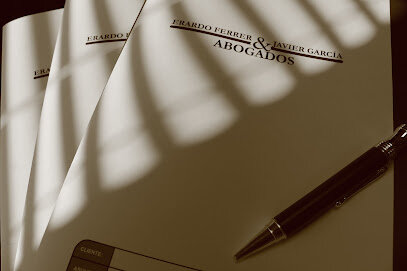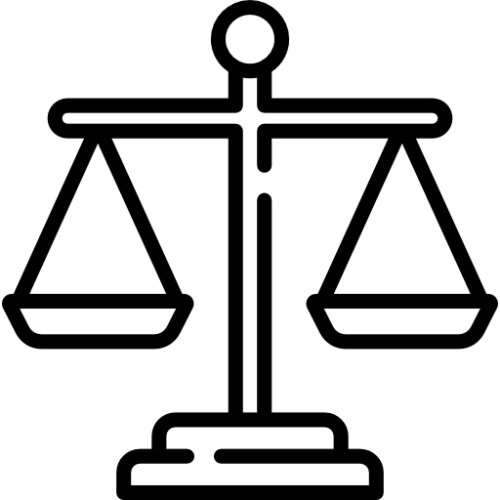Best Constitutional Law Lawyers in Arrecife
Share your needs with us, get contacted by law firms.
Free. Takes 2 min.
List of the best lawyers in Arrecife, Spain
About Constitutional Law in Arrecife, Spain
Constitutional Law in Arrecife, Spain, forms the cornerstone of legal rights and governmental structures, as defined by the Spanish Constitution of 1978. Arrecife, located in the Canary Islands, is subject to national constitutional provisions as well as specific regional statutes. Constitutional Law in this context governs the fundamental rights and responsibilities of citizens, the distribution of powers between local, regional, and national government bodies, and the mechanisms available for protecting those rights. It affects various aspects of daily life, including political participation, freedom of expression, judicial protection, and equality before the law.
Why You May Need a Lawyer
There are several scenarios in Arrecife where seeking help from a Constitutional Law lawyer is important. You might need legal support if you believe your fundamental rights have been violated, for example in cases involving discrimination, unlawful detention, or restriction of freedoms such as speech or assembly. Citizens and businesses sometimes encounter issues when challenging the legality of government actions or policies before the courts. You may need guidance with electoral matters, participation in public life, or navigating complex procedures related to governmental accountability. Lawyers also assist with constitutional complaints (recurso de amparo) and procedures in front of the Constitutional Court if other legal remedies have failed.
Local Laws Overview
Arrecife operates within both the general framework of Spanish Constitutional Law and the specific legislative environment of the Canary Islands. The Spanish Constitution guarantees key rights such as equality, freedom, property rights, and political participation. Within Arrecife, residents are also affected by the Statute of Autonomy of the Canary Islands, which further details regional governance and the application of constitutional principles. Local laws cannot conflict with the Constitution or fundamental rights, and any such conflict may be challenged. Judicial protection of rights, the authority of local governments, and the processes for appealing administrative decisions are all vital elements in this legal environment.
Frequently Asked Questions
What is Constitutional Law?
Constitutional Law refers to the set of legal principles based on the Spanish Constitution that governs the organization of the state, protection of human rights, and structure of public authorities.
Does the Spanish Constitution apply in Arrecife?
Yes, the Spanish Constitution applies throughout Spain, including Arrecife in the Canary Islands, and protects fundamental rights and duties of all citizens and residents.
What rights are protected by the Constitution in Arrecife?
The Constitution protects rights such as equality before the law, freedom of speech, right to privacy, freedom of movement, political participation, and judicial protection.
How can I file a constitutional complaint (recurso de amparo)?
You typically need to exhaust all available ordinary legal remedies before submitting a recurso de amparo to the Constitutional Court. Legal advice is highly recommended for this procedure due to its complexity.
Can I challenge a local government decision on constitutional grounds?
Yes, individuals can challenge decisions if they believe their constitutional rights have been violated. This usually starts through administrative and judicial appeals processes.
What is the Statute of Autonomy of the Canary Islands?
It is the regional legislative framework that complements the Spanish Constitution, organizing self-government and detailing the exercise of powers within the Canary Islands, including Arrecife.
How does Arrecife's City Council interact with constitutional law?
The City Council must operate within the bounds of the Constitution and the Statute of Autonomy, ensuring that all local regulations respect constitutional rights and principles.
What can I do if my right to free expression is limited in Arrecife?
If you believe your right to free expression has been unreasonably limited, you can seek legal help to contest the decision through local courts, and potentially bring your claim to higher courts or the Constitutional Court.
Are there special protections in the Canary Islands under Constitutional Law?
The Canary Islands benefit from certain special provisions due to their status as an autonomous community, but all fundamental constitutional rights guaranteed by the Spanish Constitution fully apply.
Do I need a lawyer to handle constitutional legal matters?
Due to the complexity and significance of constitutional issues, having an experienced lawyer is strongly advised for protecting your rights and navigating legal procedures in Arrecife.
Additional Resources
For further help with Constitutional Law issues in Arrecife, consider these resources:
- Defensor del Pueblo - The Spanish Ombudsman assists with rights protection and can guide you in cases of administrative injustice.
- Constitutional Court of Spain (Tribunal Constitucional) - The top legal authority for constitutional matters.
- Legal Advice Services (Servicio de Orientación Jurídica) through the local bar association in Arrecife or Lanzarote for free or subsidized initial consultations.
- Regional Government of the Canary Islands - Provides information on the Statute of Autonomy and regional regulations.
- City Council of Arrecife - Local administrative body responsible for municipal regulations and citizen services.
Next Steps
If you believe you need legal assistance with a Constitutional Law matter in Arrecife, start by gathering all relevant documents and information related to your case. Make an appointment with a qualified Constitutional Law lawyer or visit the local bar association's legal advice service for an initial consultation. Prepare a clear summary of your issue and any actions you have already taken. Your lawyer can then help you understand your rights, outline your options, and guide you through the necessary legal steps, including possible appeals to courts or administrative bodies. Acting promptly and seeking professional advice will help ensure your rights are fully protected.
Lawzana helps you find the best lawyers and law firms in Arrecife through a curated and pre-screened list of qualified legal professionals. Our platform offers rankings and detailed profiles of attorneys and law firms, allowing you to compare based on practice areas, including Constitutional Law, experience, and client feedback.
Each profile includes a description of the firm's areas of practice, client reviews, team members and partners, year of establishment, spoken languages, office locations, contact information, social media presence, and any published articles or resources. Most firms on our platform speak English and are experienced in both local and international legal matters.
Get a quote from top-rated law firms in Arrecife, Spain — quickly, securely, and without unnecessary hassle.
Disclaimer:
The information provided on this page is for general informational purposes only and does not constitute legal advice. While we strive to ensure the accuracy and relevance of the content, legal information may change over time, and interpretations of the law can vary. You should always consult with a qualified legal professional for advice specific to your situation.
We disclaim all liability for actions taken or not taken based on the content of this page. If you believe any information is incorrect or outdated, please contact us, and we will review and update it where appropriate.










